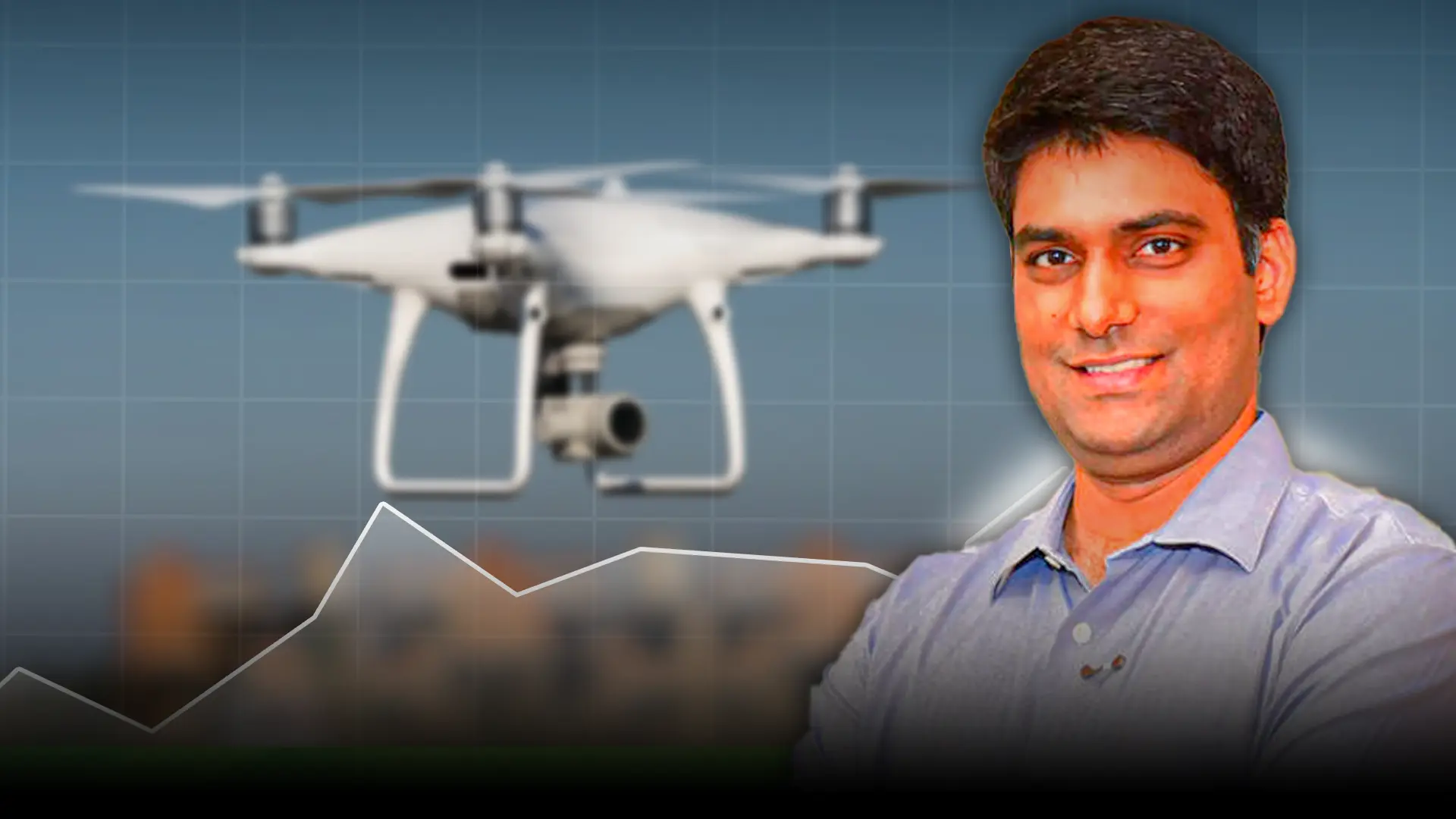Celebrating the IP advantage with ideaForge
Ankit Mehta, the co-founder of India’s only listed drone manufacturer, is a big advocate of innovation and owning our own intellectual property.
Key Takeaways
● Owning intellectual property is a competitive advantage that has helped ideaForge build confidence in its products and systems
● It has laboured on with an intense focus on building world class products
● The three pillars of ideaForge’s innovation strategy are performance, autonomy and reliability
● Having a strong technology foundation is a non negotiable for building strong IP
Ankit Mehta is an engineer. With an unrelenting focus on building drone technology in India since 2005, his co-founders and he have built ideaForge into a force to be reckoned with. What sets this success story apart is the clarity about building intellectual property from the first day.
In an exclusive interaction with YourStory, Ankit discussed why IP and patents were important in their journey, and how innovation is now an intrinsic part of their culture.
“Our play,” he says, “should be building intellectual property out of India, owning that space fully, so that we can do whatever we want with that technology, and not be dependent on the rest of the world.”
It is evident that the company has walked the talk on this count. It has an impressive 62 patents filed globally, out of which 25 have already been granted. This comes at a time when India as a whole is taking huge strides in the area of building IP. A record 41,010 patents were granted in FY 2023-24 until November 15, 2023.
Starting right
Ankit’s love for building tangible things began while he was still at IIT-Bombay. Ever since they were tinkering with ideas, Ankit and his co-founders wanted to patent every idea they thought was new. Of course, everything they built wasn’t innovative, but they kept building and solving problems.
Being the best in the world was a thought seeded in the team early in their startup journey.
While they were still students, the team participated in a competition in India where they won and felt they were the best. They went on to represent India at an international competition later and realised that while the systems they had built were impressive, they were not the global best.
“I think it seeded for us…we cannot be local best anymore,” Ankit remembers.
The three parameters
The expansion of that realisation to be global best culminated in a three-point innovation strategy for ideaForge:
● Performance: Some of its platforms today boast of class leading performance globally in their respective categories.
● Autonomy: ideaForge drones give the pilot an unmatched level of autonomy that helps them be comfortable while flying.
● Reliability: Whatever the company builds should run just as well in the real world as it does in controlled or lab conditions.
Ankit says the current teams continue to push their efforts in these three directions. “Ultimately, what we're doing is solving problems. And we're trying to make better products…for our customers,” he adds.
Foundations matter
ideaForge began its journey in 2007, and didn’t raise institutional funding until 2015. While it managed to pull through with the help of grants and unsecured debt, it never looked away from its goal of building cutting edge products.
The endurance to keep building new things took them on the path of making devices that could help feature phones survive off the grid with hand-crank chargers. There was also a stint in building a hobby drone autopilot. All these helped contribute to their already strong base of aerial robotics.
“That control and command over the fundamentals of what it takes to build something from scratch is very essential to build an intellectual property. You can't build intellectual property easily when your depth of knowledge is very superficial,” Ankit says.
Once you know you have that strong baseline, he adds, you can think of pushing your boundaries and dig two layers deeper.
Bigger and better
ideaForge prides itself on being the preferred choice of India’s defence establishment. Part of the reason is the quality of its products is unmatched in terms of reliability. But it is also true that the company has scaled operations significantly from the time it was a small startup in 2007. Does this reduce the quality of innovation?
Ankit says that for ideaForge, it has been quite the opposite. They are not only seeing increased momentum in building IP, but also incentivising a culture of new ideas.
The company has instituted intellectual property awards internally, where they reward cutting edge ideas. They also run ideation camps, where people can break away from their day to day work and think of what they would like to solve. The other factor that encourages innovation is motivation from peers, which is always in abundance at ideaForge.
“Sometimes people who are not even engineers file patents,” Ankit says.
All this speaks to the fact that owning IP is a deep competitive advantage for businesses such as ideaForge.
And it is a matter of pride for the founders. In his opening remarks at ideaForge’s second quarter results presentation in November 2023, Ankit summed it up the best when he said: “Our business distinguishes itself in being an intellectual property-led, vertically integrated business in our industry vis-à-vis many businesses operating under transfer of technology or built to print models.”
From here, the flight can only go upwards.




